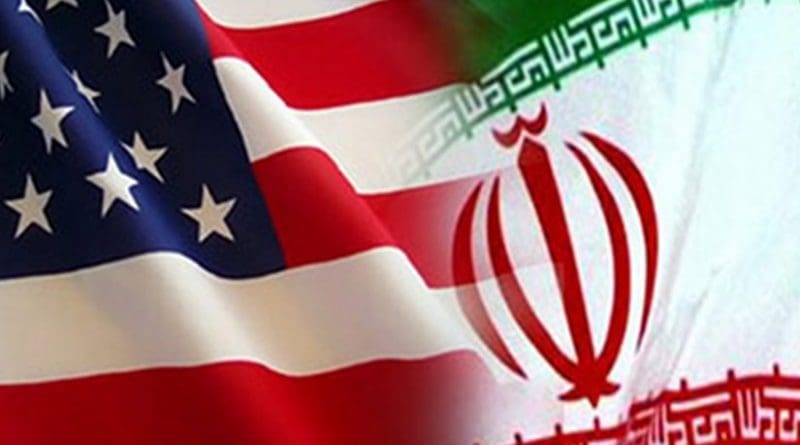Trump Versus Iran: Mixing Up The Issues – OpEd
By Arab News
By Abdulrahman Al-Rashed*
For years we have failed to determine our interests from those of Iran, or to distinguish real issues from fake ones. As such, Tehran has long managed to exploit our causes — including those of Palestine, Arabs and Muslims — using them as bargaining chips to serve its interests. Many have realized this only recently after seeing its crimes in Iraq, Syria, Yemen and Bahrain.
We will see Iran and its allies do the same again, and launch campaigns against the new US administration and other governments that stand against them. So we should not mix up facts and interests. Let Iran and its allies fight on their own this time. Why is US President Donald Trump running into these raucous confrontations? I think he is trying to build popularity in front of many adversaries in the media, the Democratic Party, Congress and others.
Trump responded to complaints by Americans that foreigners are overcrowding the country by deciding to build a wall on the border with Mexico to stop more than 700,000 from infiltrating the US annually. Terror concerns led him to issue a three-month travel and immigration ban on citizens of seven Muslim-majority countries plagued by anarchy and terrorism.
As labor unions oppose American companies opening factories outside the US, he pledged to impose fines on imported goods. Trump referred two major contracts, including one to build his presidential plane, for review in a bid to convince those who slam the government contracts that he is against corruption. He also blocked government aid to organizations that support abortions as there are pro-life conservatives.
We cannot brand Trump anti-Muslim as he is building a wall to block infiltration from Christian Mexicans. He pledged to deport illegal immigrants, who are estimated to be over 11 million, most of them non-Muslim. In addition, Trump’s ban targets only seven Muslim countries out of 57.
These seven nations are afflicted by conflict and weak central government. Most of the world’s countries hesitate to grant entry visas to citizens of these states, due to a lack of powerful central authorities to contact for security coordination.
Terrorism is not exclusive to these seven countries. It exists in Pakistan, Bangladesh, Saudi Arabia, Turkey and other Muslim states. Terror is even present in Western countries such as Belgium, France, Italy and others. Muslims in these countries have not been added to the ban list, because such countries have central governments and security agencies with which information can be exchanged to reduce risks.
Trump’s key battle is not with Muslims or Mexicans, but on the American street. He feels he should honor the pledges he made to his voters. Despite his persistence, however, he may not win the battles due to people’s protests and legal restrictions.
Anyway, it is an internal American affair.
The US appears to be the country that has benefited the most economically from immigrants, refugees, naturalized citizens and even illegal immigrants. The American experience of absorbing others and benefitting from immigrants has become an inspiration to many countries with economic aspirations.
It is normal that foreigners are rejected by the jobless and less fortunate in society. Domestic rejection of foreigners is a recurrent phenomenon in all societies due to factors such as growing competition for jobs and partisan campaigns, which promote such sentiment for electoral gain, as was the case with Trump.
The new enthusiastic president, no matter how great his powers, will not be able to prevent terrorism, deport all illegal residents or prevent infiltration from Mexico. But he will try to realize the biggest possible gains inside and outside the US. He will not win all his battles.
Perhaps Trump’s most significant decision has been not to cooperate with Iran, which will infuriate Tehran and drive it to unleash against him its puppets in Gaza, Iraq, Syria, Yemen, and organizations that falsely operate under the slogan of Islam.
*Abdulrahman Al-Rashed is a veteran columnist. He is the former general manager of Al Arabiya News Channel, and former editor-in-chief of Asharq Al-Awsat, where this article was originally published.

